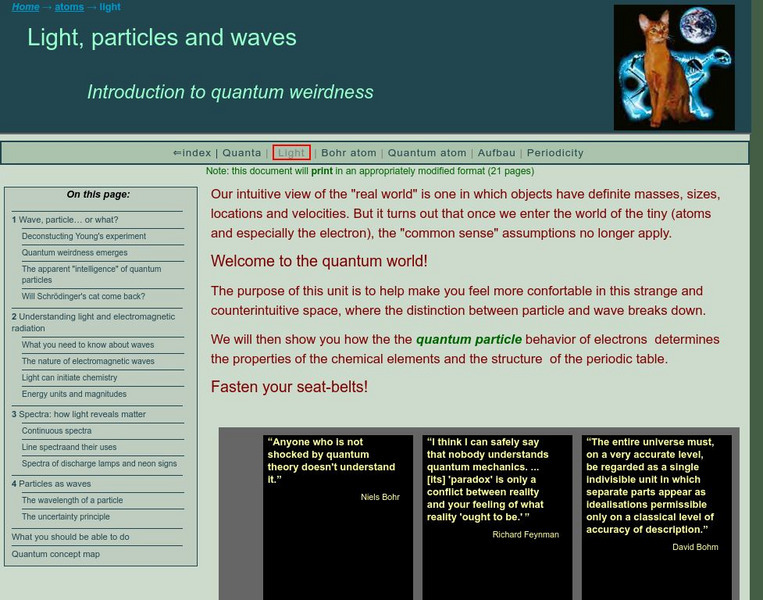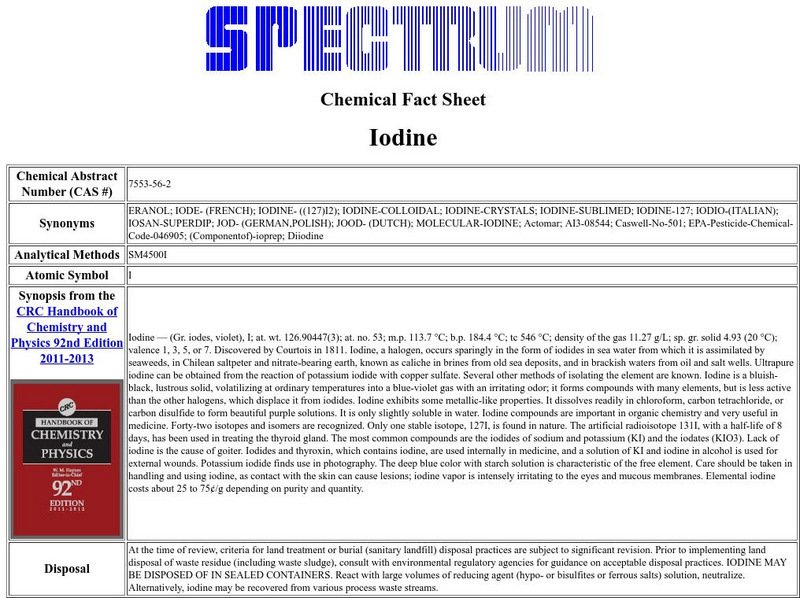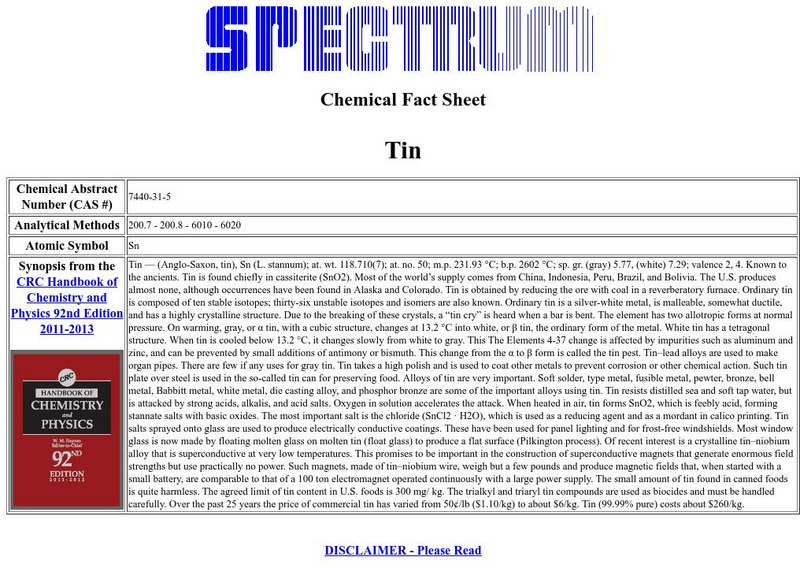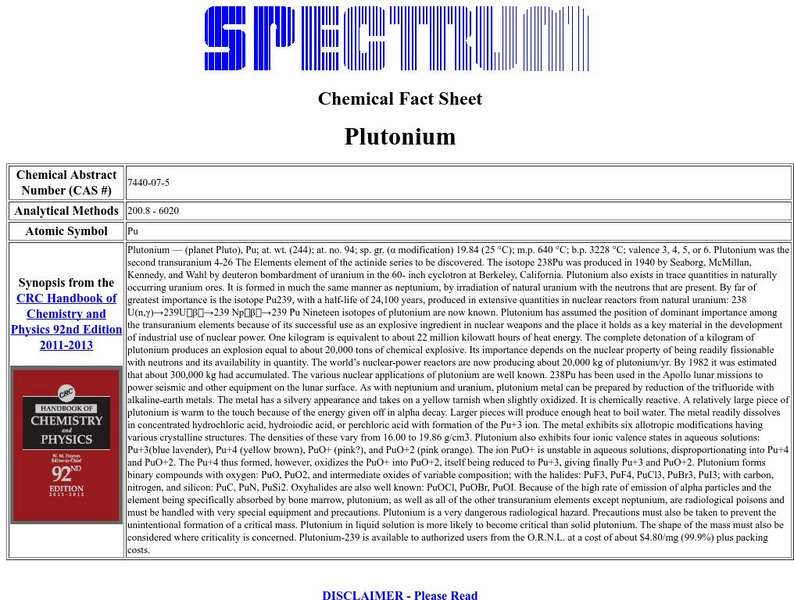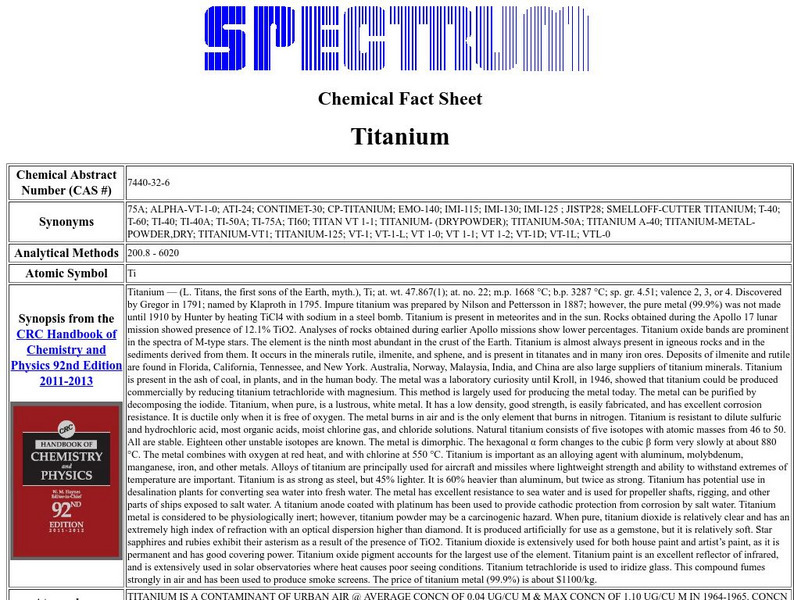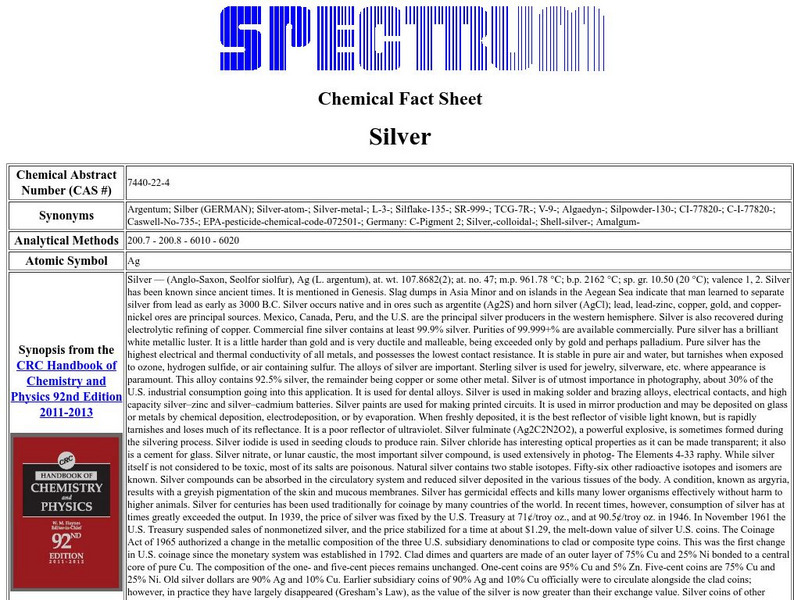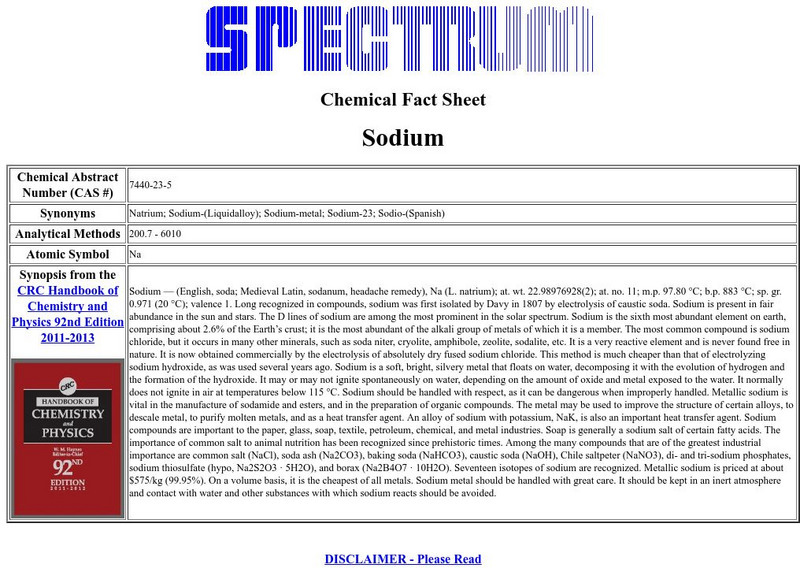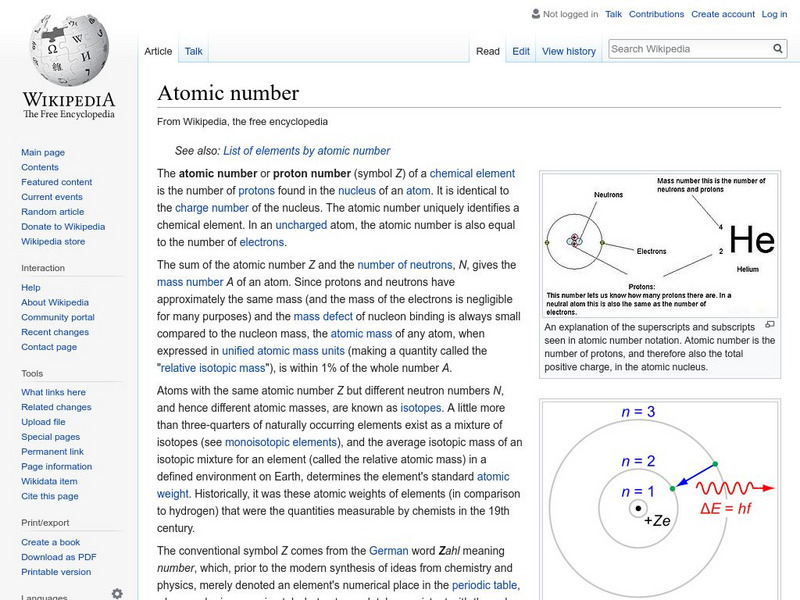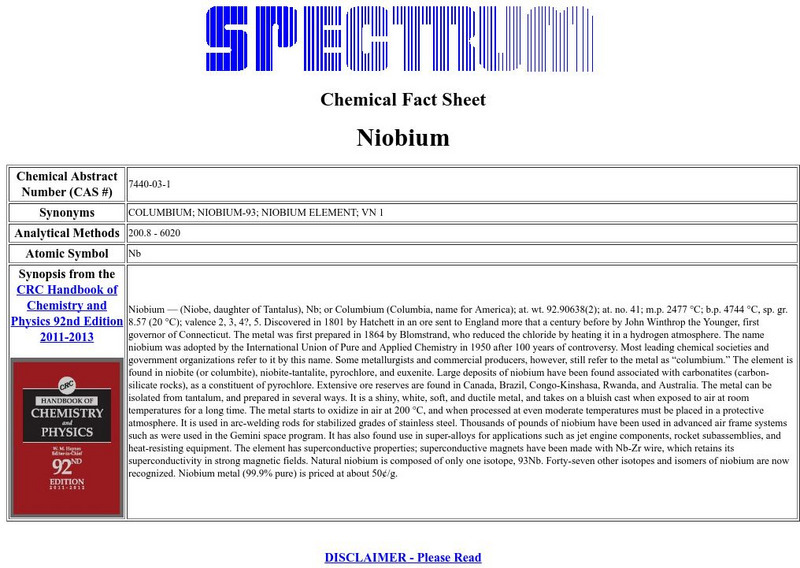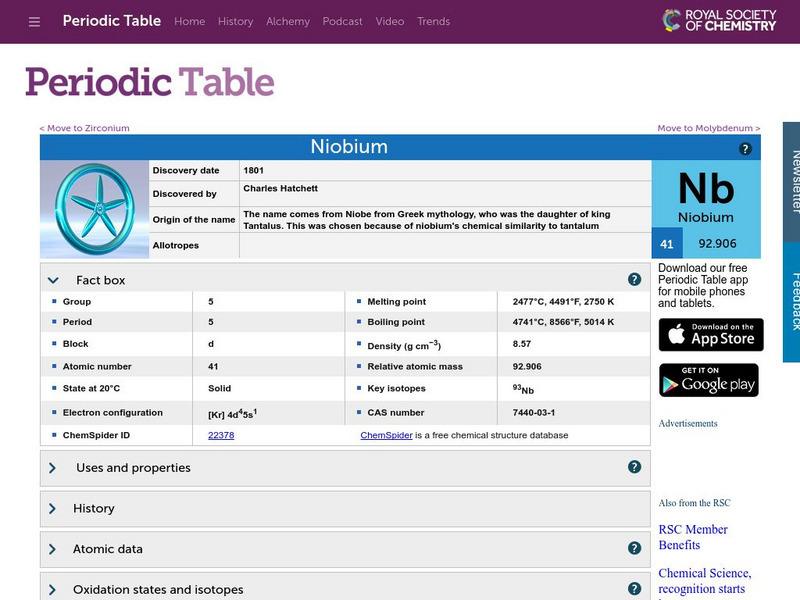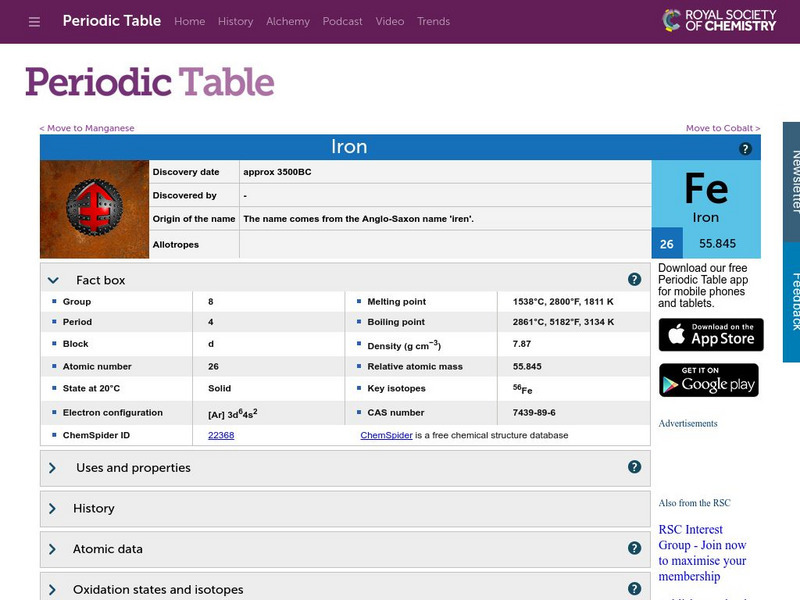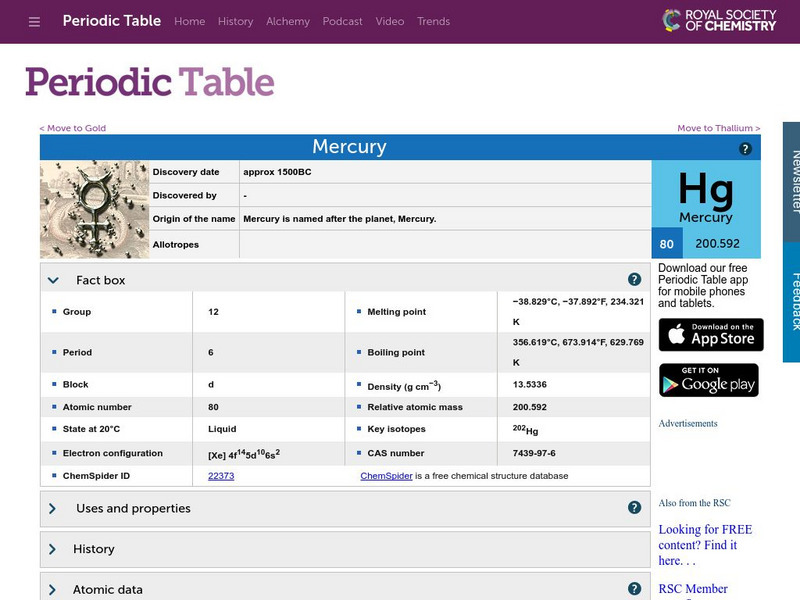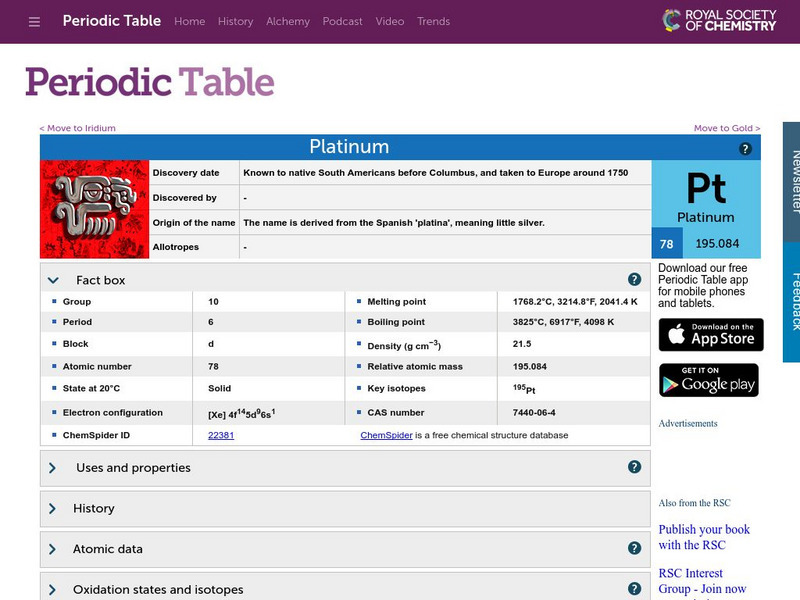Hi, what do you want to do?
Simon Fraser University
Chem1 Virtual Textbook: Spectra and Interaction of Light and Matter
Acting as a subtopic of the General Chemistry Virtual Textbook's section on Atoms and the Periodic Table, this site discusses continuous spectra and line spectra using examples and charts to assist in the understanding.
ClassFlow
Class Flow: Elements of Literacy
[Free Registration/Login Required] In this flipchart students will use the symbols of the chemical elements to form words. The students will improve their functional literacy and critical thinking skills. Students will also increase...
Thomas Jefferson National Accelerator Facility
Jefferson Lab: Element Hangman
How well do you know your elements? The computer will randomly pick the name of one of the elements. Use the clue to discover which element the computer picked. Be careful! Each incorrect letter you guess causes the atom man to decay.
Florida-Spectrum Environmental Services
Florida Spectrum: Chemical Fact Sheet: Neon
Detailed information on neon, its properties, history and uses. A good resource for this element.
University of Kentucky
Uk: Chemcomics: Iodine
Comic fraturing iodine. Not the most detailed information, but lots of fun. Interesting and useful for visuals.
Wikimedia
Wikipedia: Electronegativity
This encyclopedia article from Wikipedia gives a definition for what electronegativity is, information on the two scales of electronegativity that are in common use (Pauling and Mulliken Scales), and a discussion on electronegativity...
Florida-Spectrum Environmental Services
Florida Spectrum: Chemical Fact Sheet: Iodine
This site provides a fact sheet with information on the basic data and properties of Iodine. It also includes some of its uses.
Florida-Spectrum Environmental Services
Florida Spectrum: Chemical Fact Sheet: Tin
This site provides a fact sheet with information on the basic data and properties of Tin. It also includes some of its uses.
Florida-Spectrum Environmental Services
Florida Spectrum: Chemical Fact Sheet: Plutonium
This site provides a fact sheet with information on the basic data and properties of Plutonium. It also includes some of its uses.
Florida-Spectrum Environmental Services
Florida Spectrum: Chemical Fact Sheet: Titanium
This site provides a fact sheet with information on the basic data and properties of Titanium. It also includes some of its uses.
Science Struck
Science Struck: Halogen Family
Read about the non-metallic elements in the halogen family, what their chemical and physical properties are, their uses, and some interesting facts about them.
Florida-Spectrum Environmental Services
Florida Spectrum: Chemical Fact Sheet: Silver
This site provides elemental information which may not be found in many other sites. Here you can find historical information, common uses and even the approximate going price for a gram of the element.
Florida-Spectrum Environmental Services
Florida Spectrum: Chemical Fact Sheet: Sodium
This site provides elemental information which may not be found in many other sites. Here you can find historical information, common uses and even the approximate going price for a gram of the element.
Wikimedia
Wikipedia: Atomic Number
Wikipedia provides the definition of the term, "Atomic number," a term used in chemistry and physics to represent the number of protons in the nucleus of an atom.
Florida-Spectrum Environmental Services
Florida Spectrum: Chemical Fact Sheet: Niobium
A thorough summary of the properties and uses of this metal.
Science Struck
Science Struck: Characteristics of Halogens
Learn about the characteristics, chemical and physical properties, and uses of halogens.
Royal Society of Chemistry
Royal Society of Chemistry: Osmium
The ChemicalSociety provides a short entry with information on the history, description and uses of osmium.
Royal Society of Chemistry
Royal Society of Chemistry: Niobium
Basic information on the origin of the name and the uses of niobium
Royal Society of Chemistry
Chemical Society: Iron
Brief information on the history, properties ands uses of iron.
Royal Society of Chemistry
Chemical Society: Mercury
This site from the Chemical Society provides a short page with basic information on mercury and its uses. Less detail than most but a nice graphic.
Royal Society of Chemistry
Royal Society of Chemistry: Platinum
The ChemicalSociety provides a short entry with a small amount of info on platinum and its uses.





